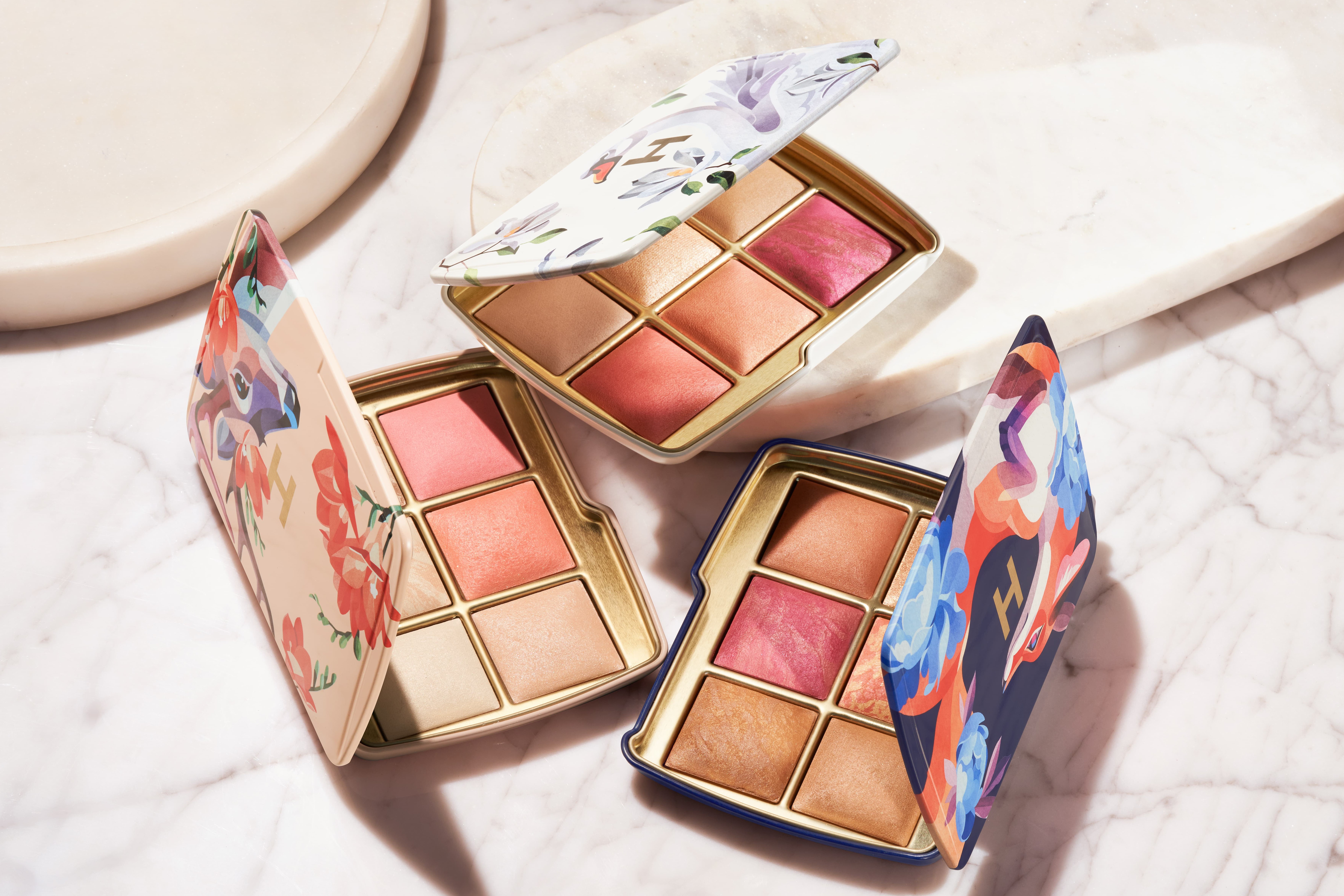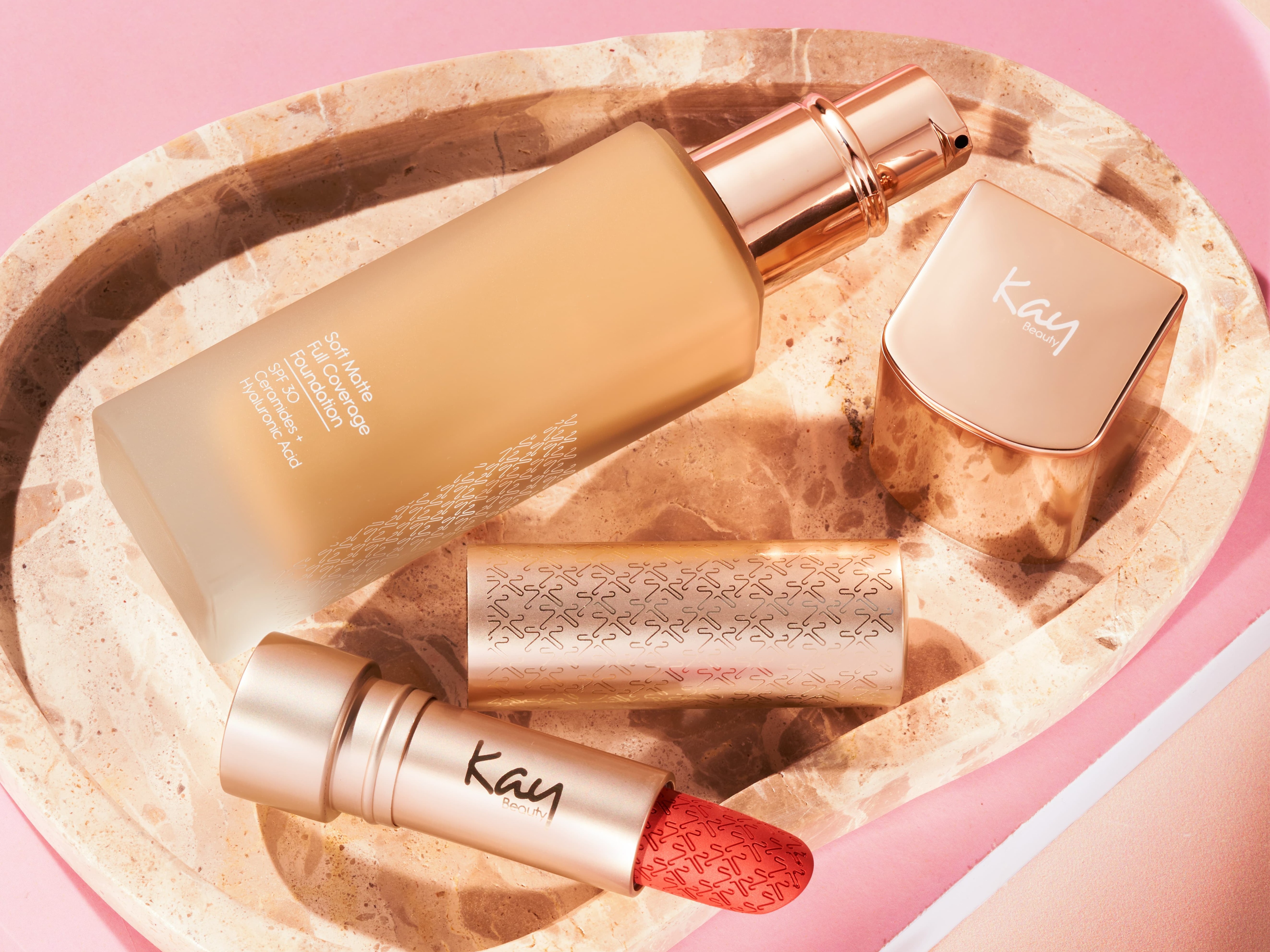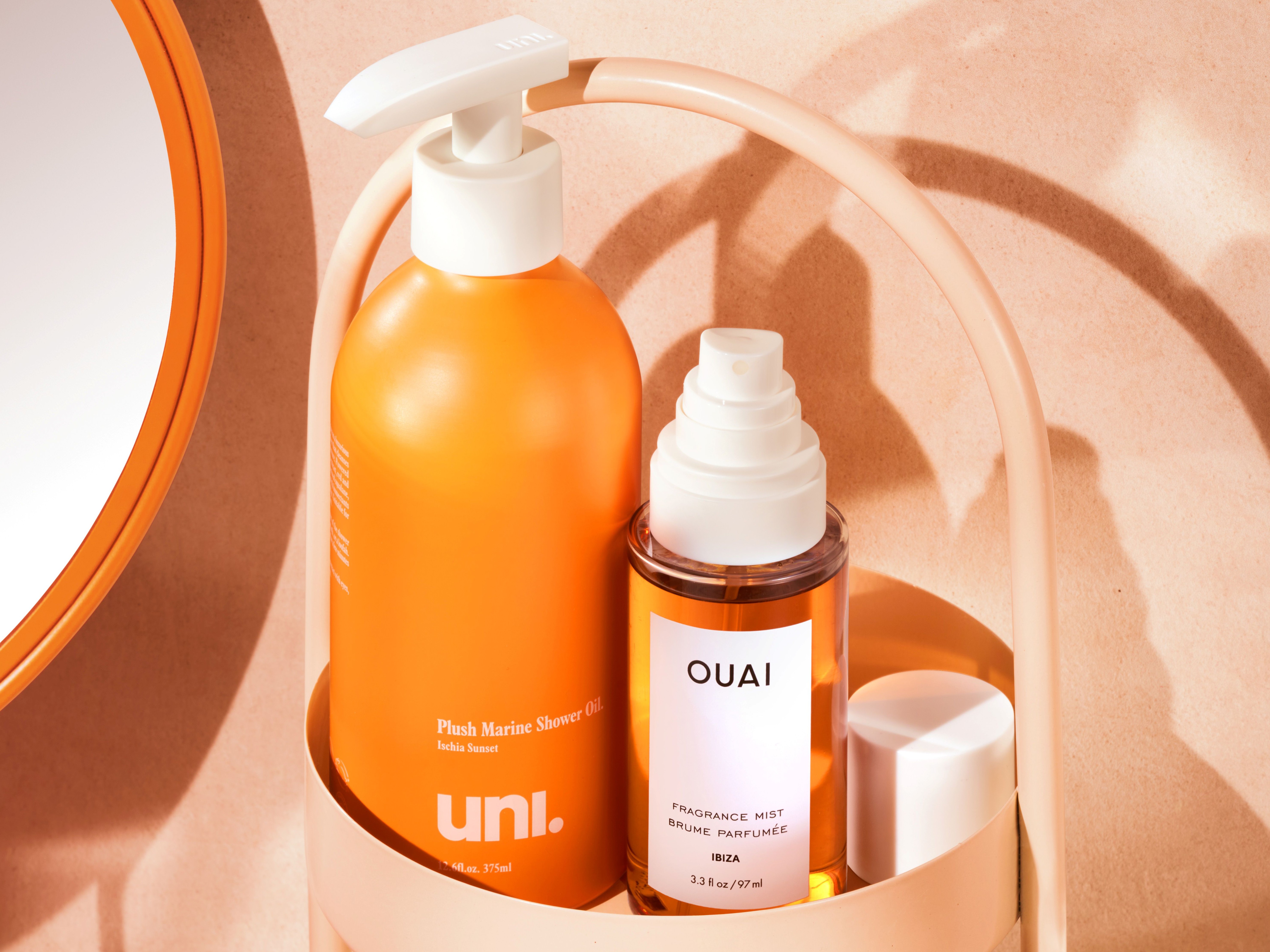Find The Best Sunscreen For You
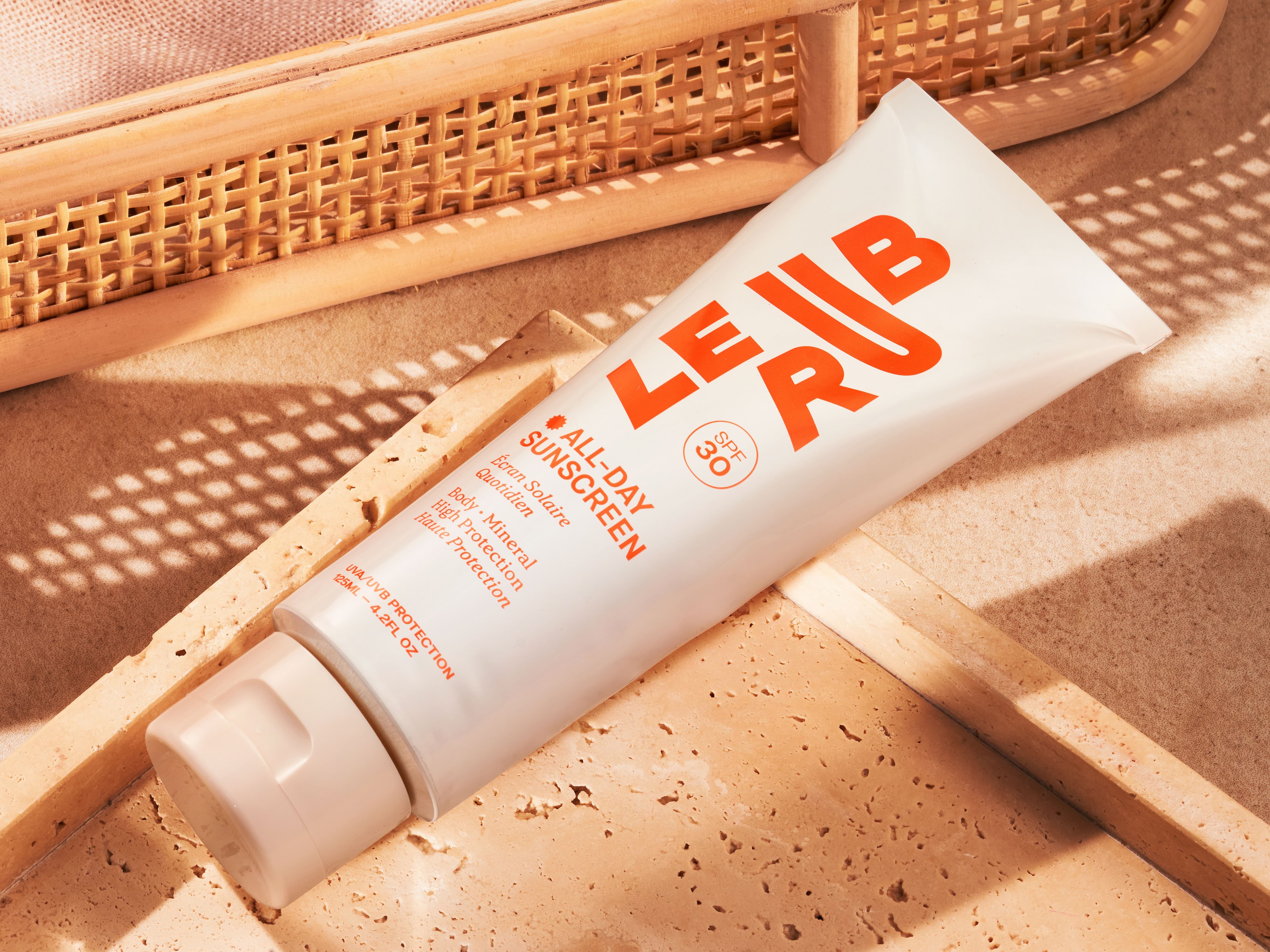
Yet, finding your perfect match is no mean feat. The key is to find formula that is compatible with your skin and has a texture you’ll genuinely enjoy using, because if it feels good, then you’ll be more likely to apply it daily.
Thankfully, sunscreen has come a long way from its greasy, white cast beginnings. Today’s formulas are smarter, sleeker, and far more enjoyable to wear. From Australian favourites like Ultra Violette to dermatologist-developed options from Medik8, there’s now a sunscreen to suit every skin type, routine, and finish preference, making SPF feel like a treat, not a chore. Keep reading to discover why we’re proudly SPF-obsessed and shop the best sunscreens for the face to try in 2025.
The Best Sunscreens for Face to buy in 2025
Ultra Violette
Supreme Screen Hydrating Facial Skinscreen SPF 50+, £23.80
Best Everyday Sunscreen For All Skin Types
Sure, all skin is different, but this was formulated to work for all tones and types. If you have been wondering which Ultra Violette formula you should try, this is our number one. It can be worn on its own, or over your daily moisturiser and it sits well under makeup. Plus, when a sunscreen is formulated in the sunshine climate of Australia, you can place a confident bet it will offer next-level protection against the sun’s harmful rays.
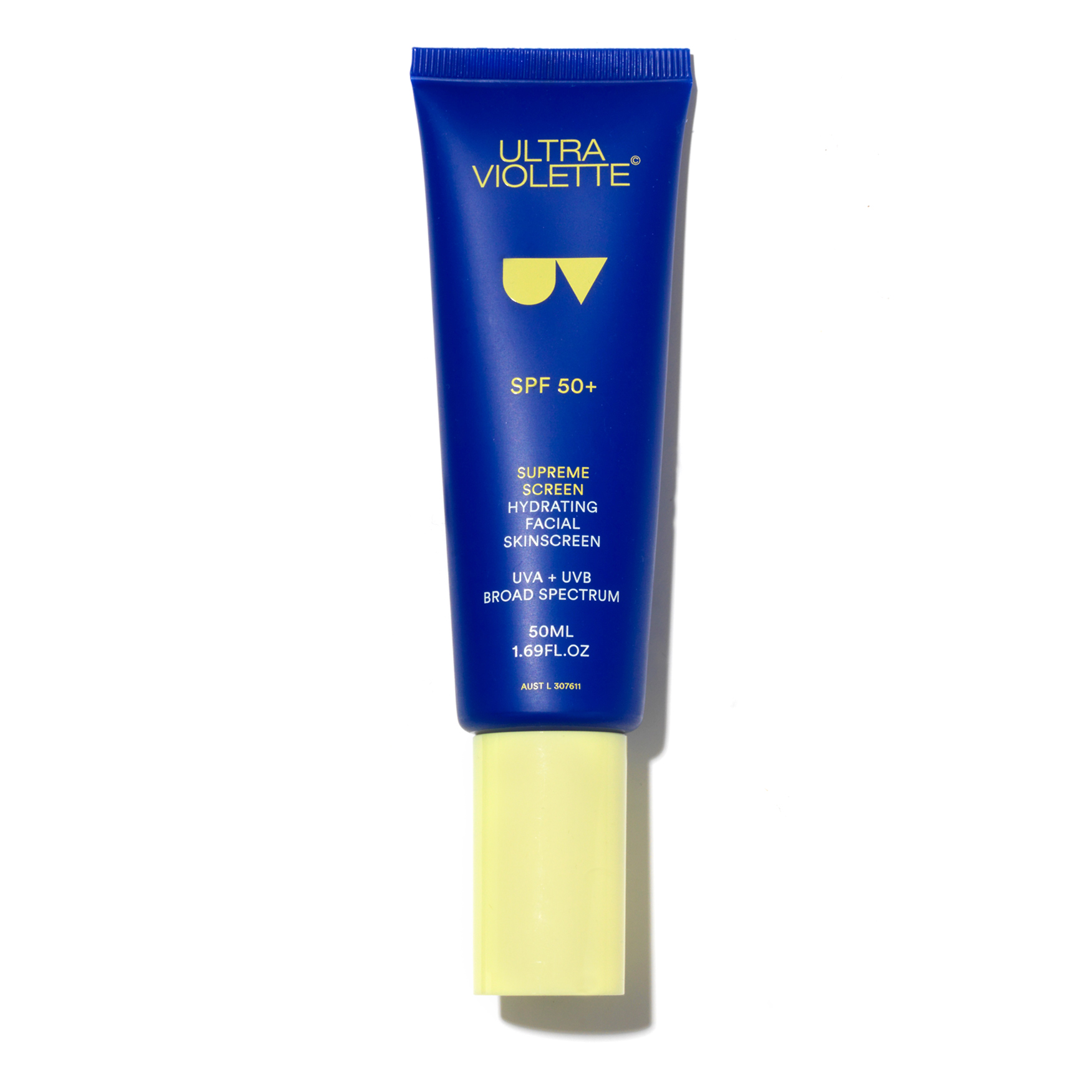
Murad
Superactive SPF50: Brightening, £55.00
Best Dermatologically Formulated Sunscreen for Your Face
Anyone passionate about skincare will tell you that vitamin c and SPF are a match made in heaven. This formula knows the score. Not just your average SPF, it’s super loaded with potent vitamin C, which is known for its ability to brighten dark spots, create a radiant complexion and even out skin-tone. When paired with SPF, the two shield and minimise UV damage in more ways than one. It’s ultra sheer and leaves a lightweight heavy-on-hydrating layer on the skin, prepping a fresh, glowing canvas for your makeup.
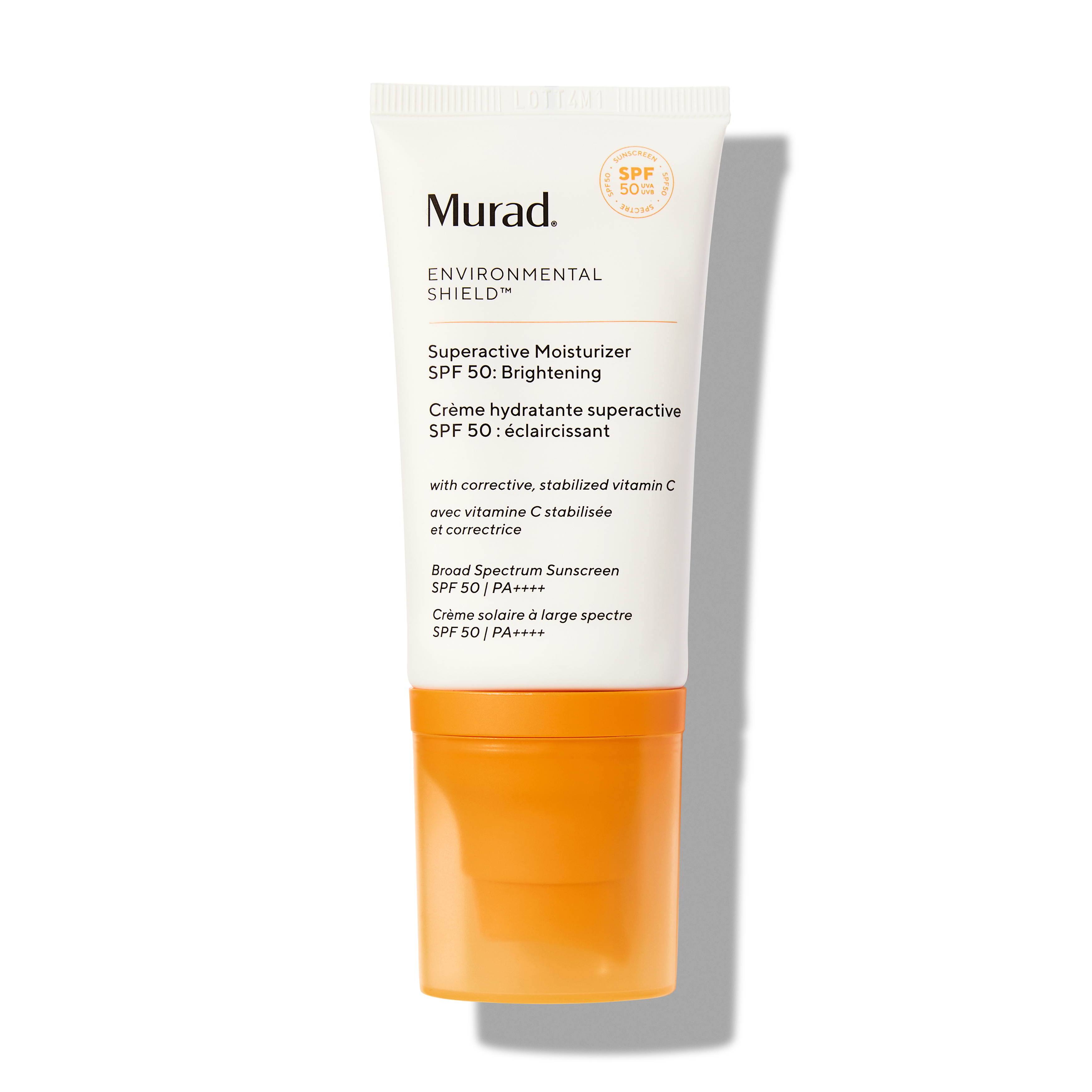
Augustinus Bader
The Sunscreen SPF50, £110.00
Best Luxury Sunscreen for Your Face
The secret to red carpet skin? Become acquainted with Augustinus Bader . Beloved by celebrities and beauty editors alike for its facial-worthy formulas, the brand's first foray into suncare is nothing short of luxurious. The Sunscreen SPF 50 blends its signature skin technology with broad-spectrum protection. Its texture is what makes it stand out, with a hydrating serum-like feel that is never greasy and won't disrupt makeup.
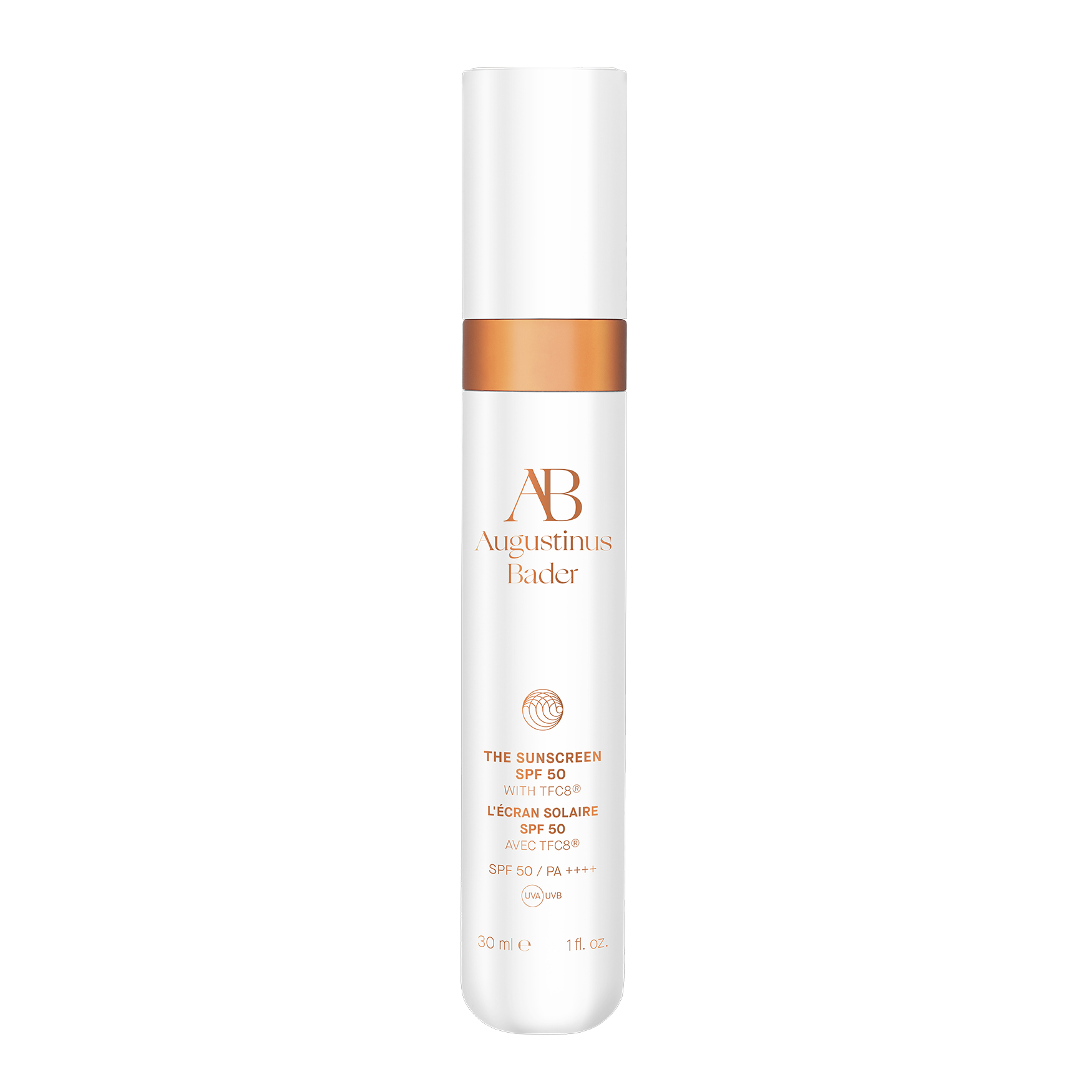
KOSAS
DreamBeam SPF 30, £27.75
Best Tinted Sunscreen for Your Face
KOSAS just launched their viral TikTok-approved sunscreen in the UK and we've got the exclusive. If you're looking for a mineral sunscreen that can double as a makeup primer, or even as your everyday base, this Kosas sunscreen may become your new everyday essential. Available in two shades, you can opt for a natural finish or a glowy, bronzy base.

Drunk Elephant
Umbra Tinte Physical Daily Defense SPF30, N/A
Best Mineral Sunscreen for Your Face
Protect your skin and get a healthy-looking glow with Drunk Elephant’s Umbra Tinte Physical Daily Defense SPF30. It’s like mixing the must-have Drunk Elephant D-Bronzi drops with your favourite SPF, only the work is already done for you. We like that this SPF works for all skin tones and if you’re a makeup minimalist you can forgo your usual base as Umbra Tinte provides gorgeous sheer coverage.
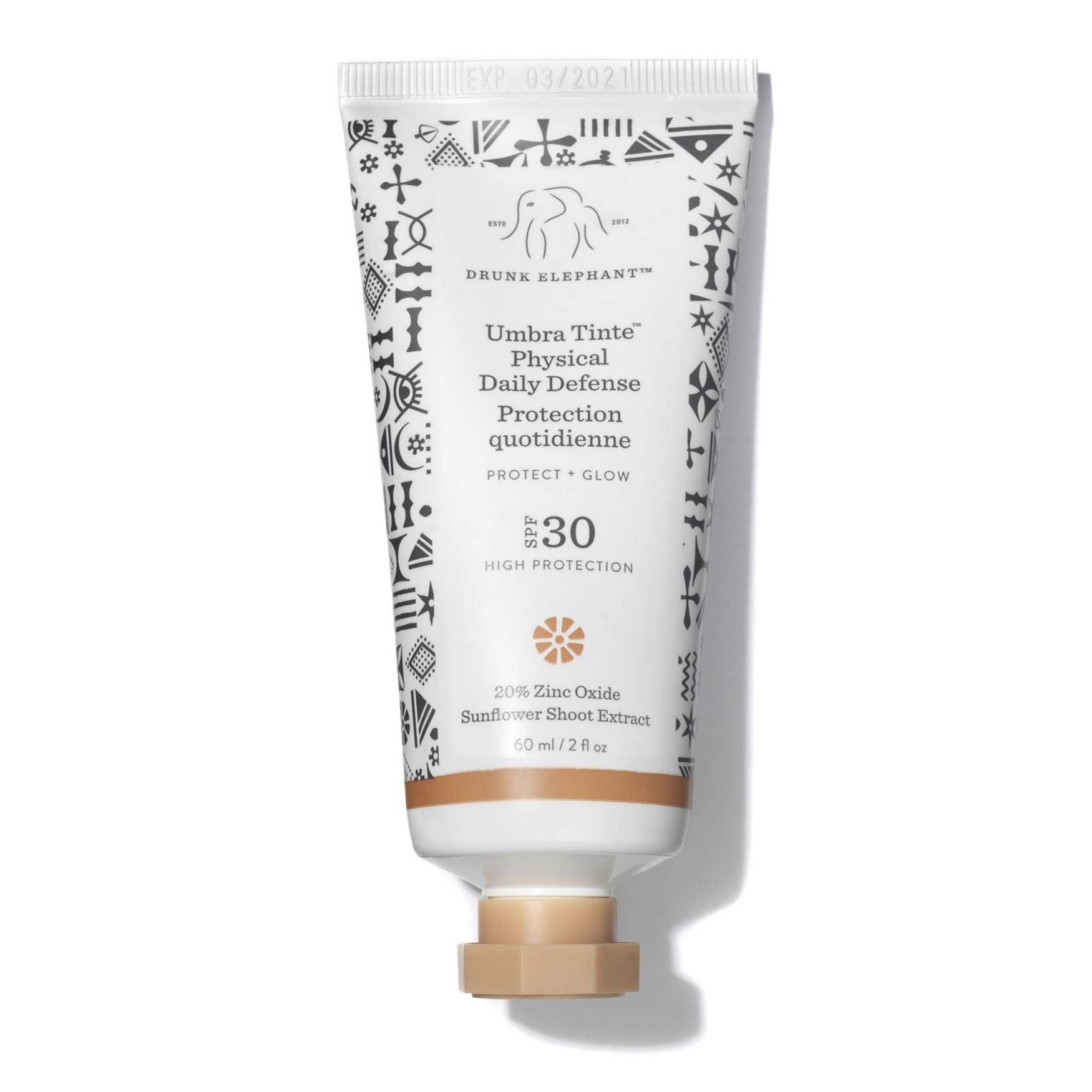
Summer Fridays
ShadeDrops Broad Spectrum SPF 30 Mineral Milk Sunscreen, £36.00
Best Sunscreen For Dry Skin
If you’ve been on Instagram or TikTok over the past few months you’ll have seen Summer Friday’s sunscreen on your feed. The brand is all about crafting products that fit seamlessly into your routine, and this one is no exception. The lightweight formula offers SPF 50 protection and melts into skin and feels like you’re not wearing anything. If you have dry skin, it’s a great option as it hydrates without feeling heavy and gives your skin a gorgeous radiant finish.
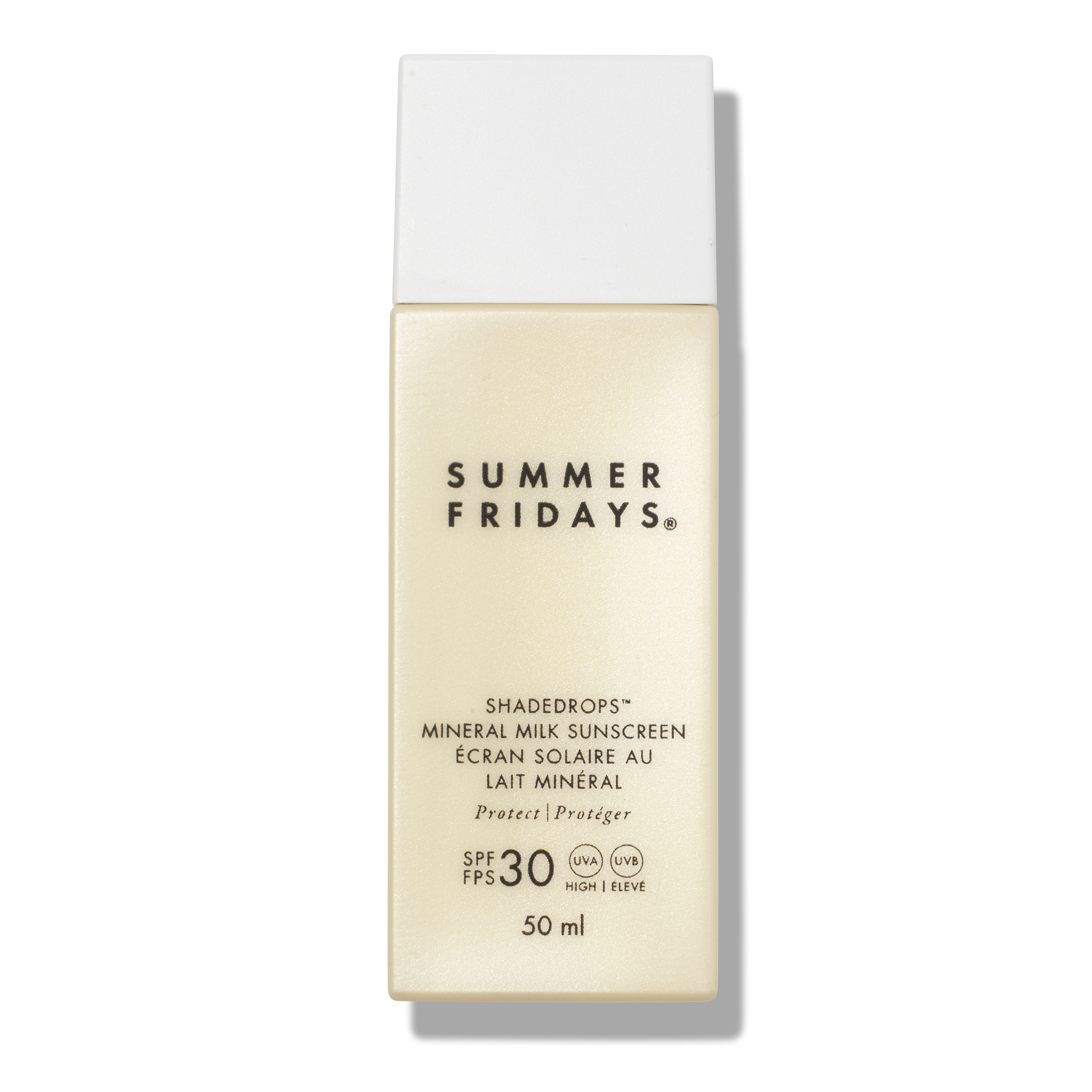
Hello Sunday
The One That's A Serum - Face Drops: SPF 50, £23.00
Best Multitasking Sunscreen for Your Face
We love a serum SPF and this one from Hello Sunday not only protects against UV rays, but it also shields skin from pollution and blue light. If you spend a lot of time in front of a screen or live in the hustle and bustle of a city, this is the best sunscreen for your face. Plus, it contains hyaluronic acid and vitamin C to give your skin an extra boost.
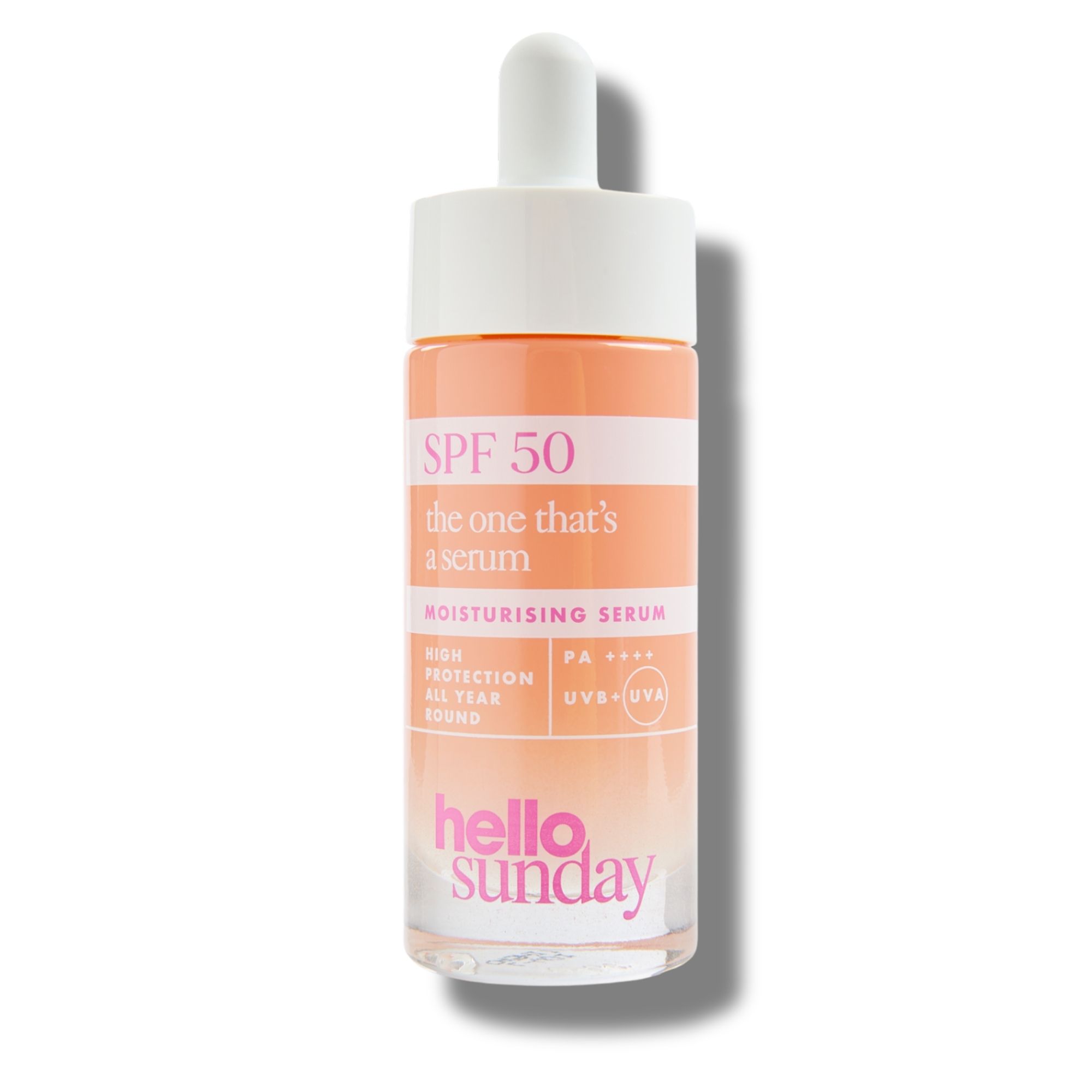
Lancaster
Sun Sensitive Oil-free Milky Fluid SPF50, £28.00
Best Sunscreen For Oily Skin
Anyone with sensitive or oily skin knows the struggle of finding a sunscreen that doesn’t result in a break out. If you’re still looking for the best SPF for oily skin, let us point you in the direction of Lancaster Sun Sensitive Oil-free Milky Fluid. It’s lightweight, it’s oil-free and it doesn’t give you that greasy sheen that some SPF formulas leave. Bonus points: it’s ocean-friendly so you can wear it on holiday too.
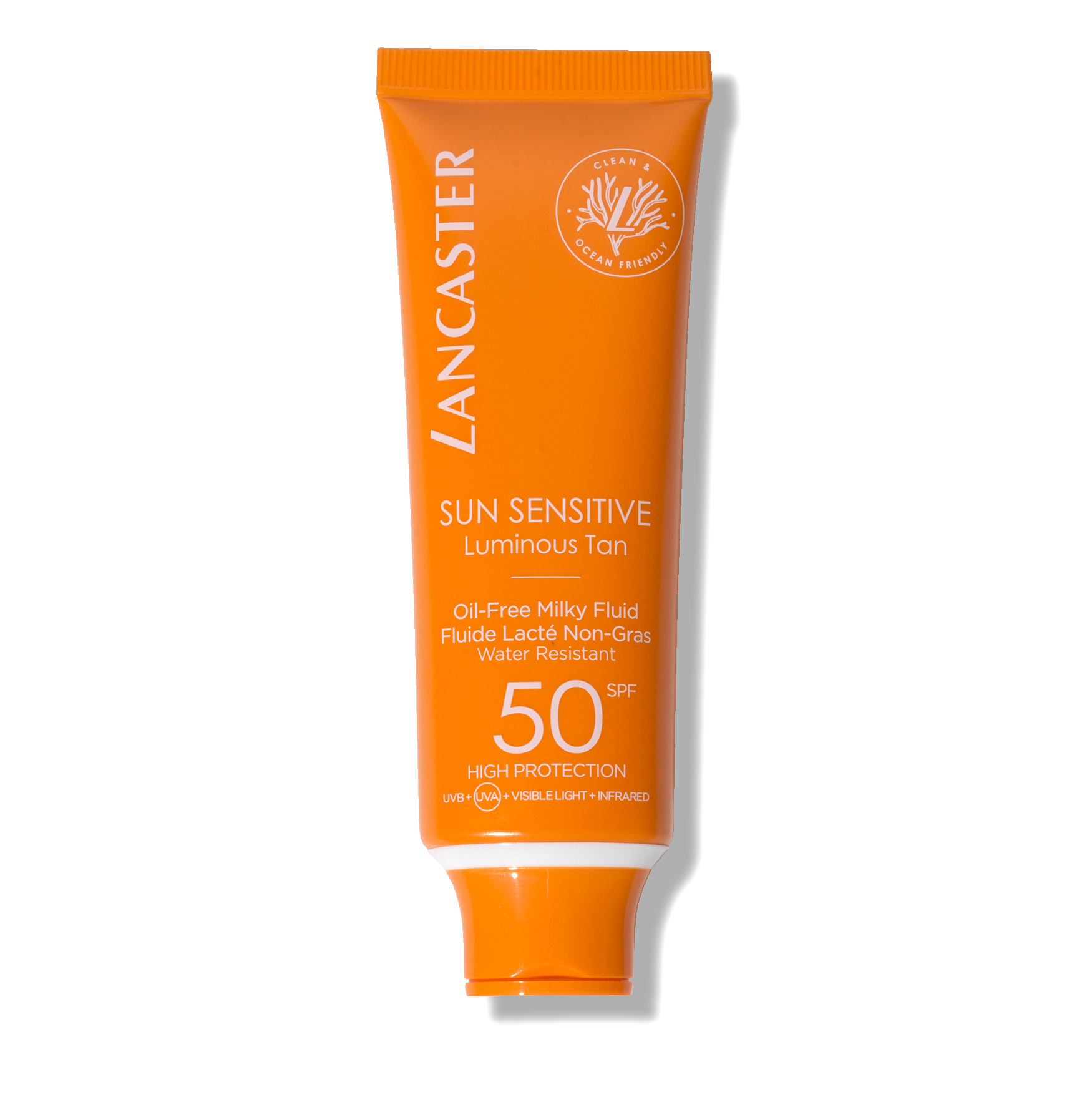
Medik8
Advanced Day Ultimate Protect SPF50+, £59.00
Best Sunscreen For Hyperpigmentation
Of course Medik8 has an excellent SPF, which helps to not only protect skin and blur fine lines and wrinkles, but also helps fade hyperpigmentation overtime. If acne and pigmentation are skin concerns you're keen to tackle, this might be the one for you.

Ultra Violette
Fave Fluid SPF 50+ Lightweight Fragrance Free Skinscreen, £10.50
Best Lightweight Sunscreen for Your Face
Ultra Violette's newest offering, Fave Fluid is another great SPF from the Aussie brand. It's hard to imagine a lighter weight formula exists. The watery consistency is easy to apply and absorbs super quickly. If you hate wearing sunscreen on your face because it feels heavy, this is absolutely worth seeking out. Plus, it gives your factor 50 sun protection.
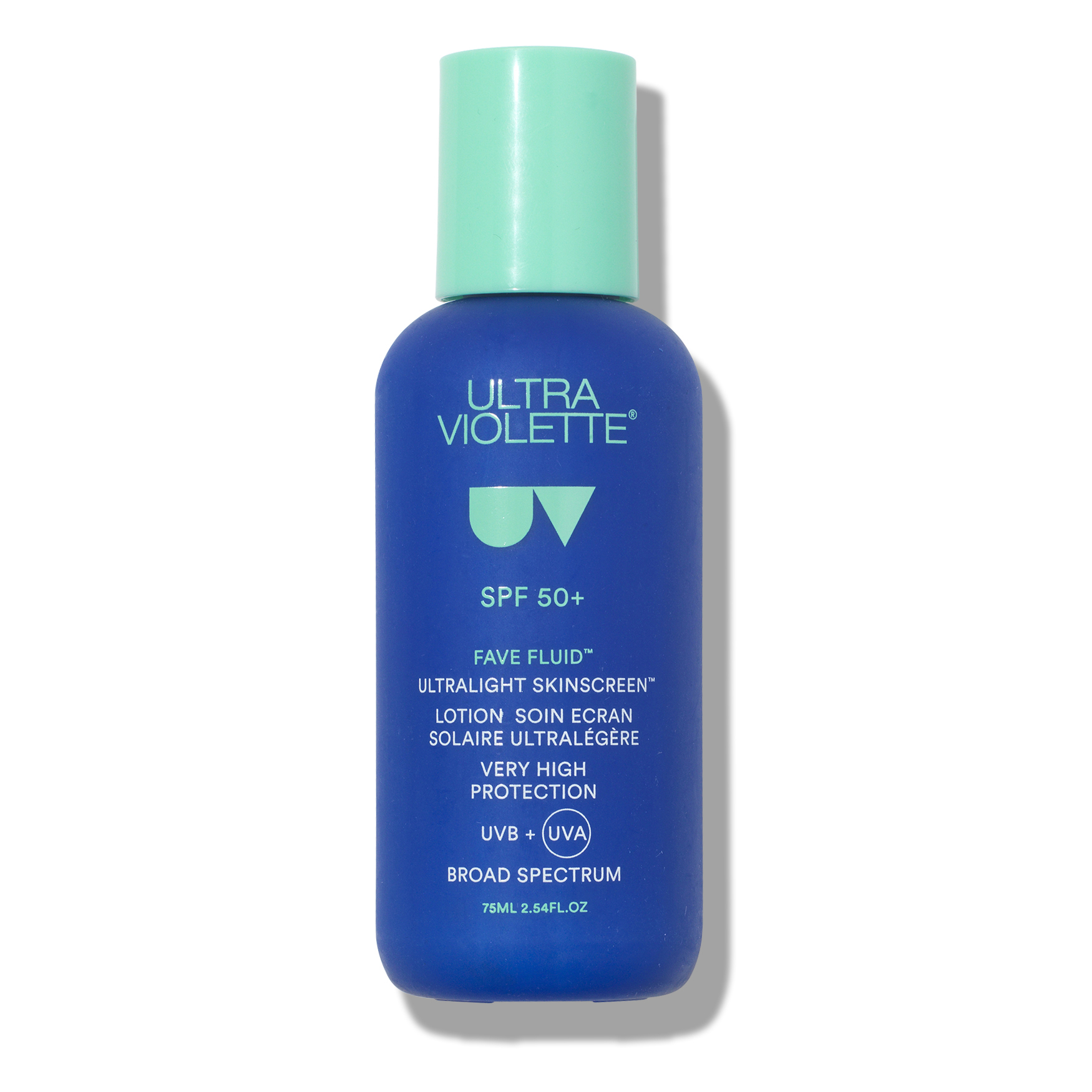
SALTEE
SPF50 Face Sea & Sun Formula, N/A
Best Sunscreen For The Beach
To say we're thrilled that Saltee has launched at Space NK would be an understatement. This homegrown British beauty brand specialises in suncreen and we are obsessed with this formula. It offers factor 50 protection, smells divine and is reef-friendly - it's a beach essential.
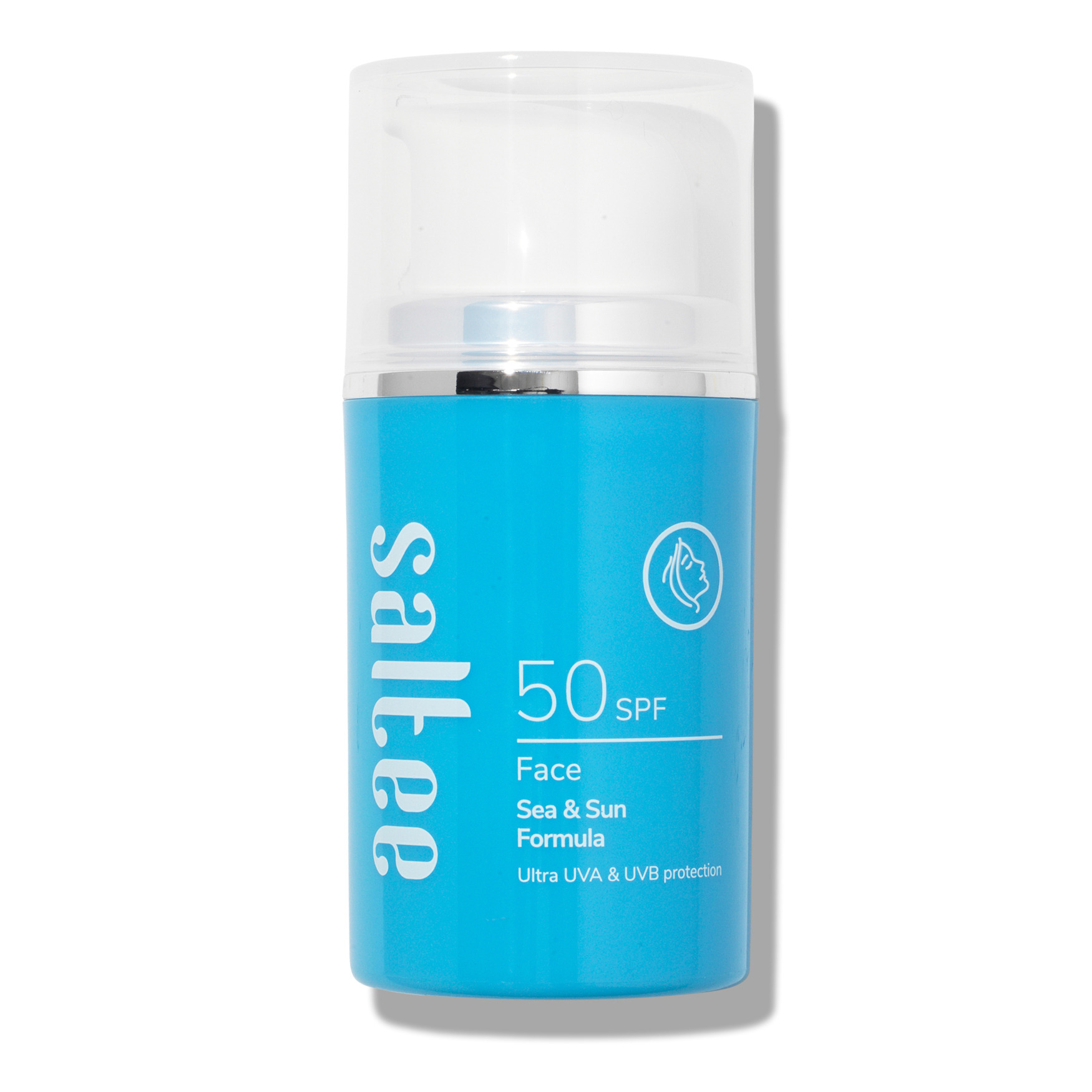
Coco & Eve
Daily Watergel SPF50, £23.00
Best Sunscreen For Dry And Sensitive Skin
Want protection, hydration and a little bit of radiance? Infused with hyaluronic acid, aloe vera and vitamin E, this lightweight, fragrance-free and perfectly hydrating formula is fab not only for dry complexions, but is also a great option if you’re verging on sensitive skin. It absorbs quickly, doesn’t feel greasy and formula and leaves the skin with a lovely satin finish.
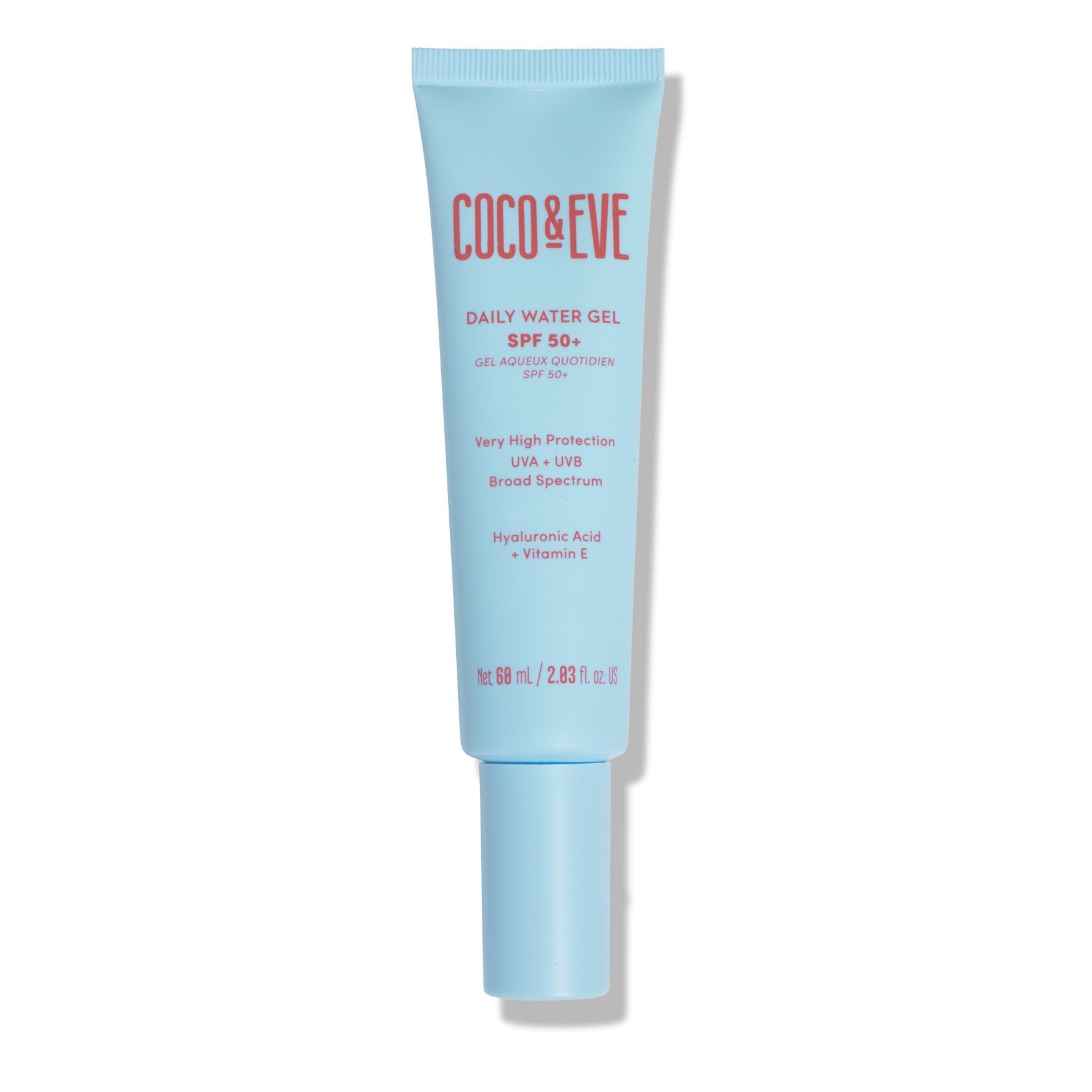
Dr. Dennis Gross
All Physical Ultimate Defense SPF 50, £42.00
Best Mineral Sunscreen For All Skin Types
Sweat and water resistant, lightweight and oil-free, this zinc oxide, tranexamic and hyaluronic acid infused mineral sunscreen means business. As well as protecting your complexion from UVA and UVB rays for up to 80 minutes, this overachiever also targets hyperpigmentation, uneven skin tone and fine lines. We also love the dewy finish and how it layers beautifully under makeup.
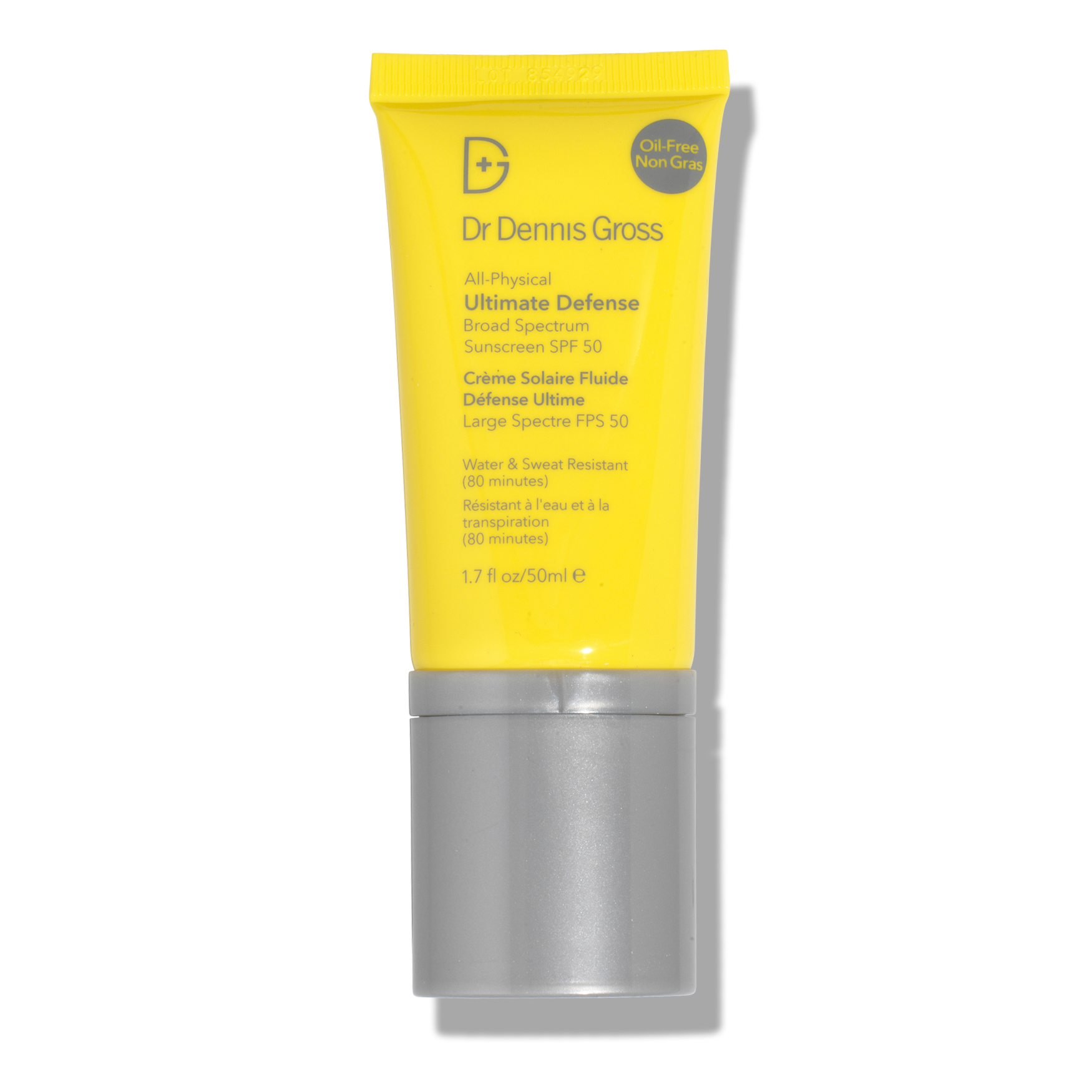
Supergoop!
Glow Stick SPF 50, £16.20
Best Mineral SPF Stick For Dry And Combination Skin
Few brands can get us as excited about sunscreen as Supergoop!, which is possibly one of the most feelgood suncare names out there. We love many of the brand’s formulas, and this one in particular is a favourite for our handbags. Making on-the-go protection a breeze thanks to its mess-free design, we adore that this non-comedogenic formula also doubles as a face and body highlighter. Ready to glow all over?
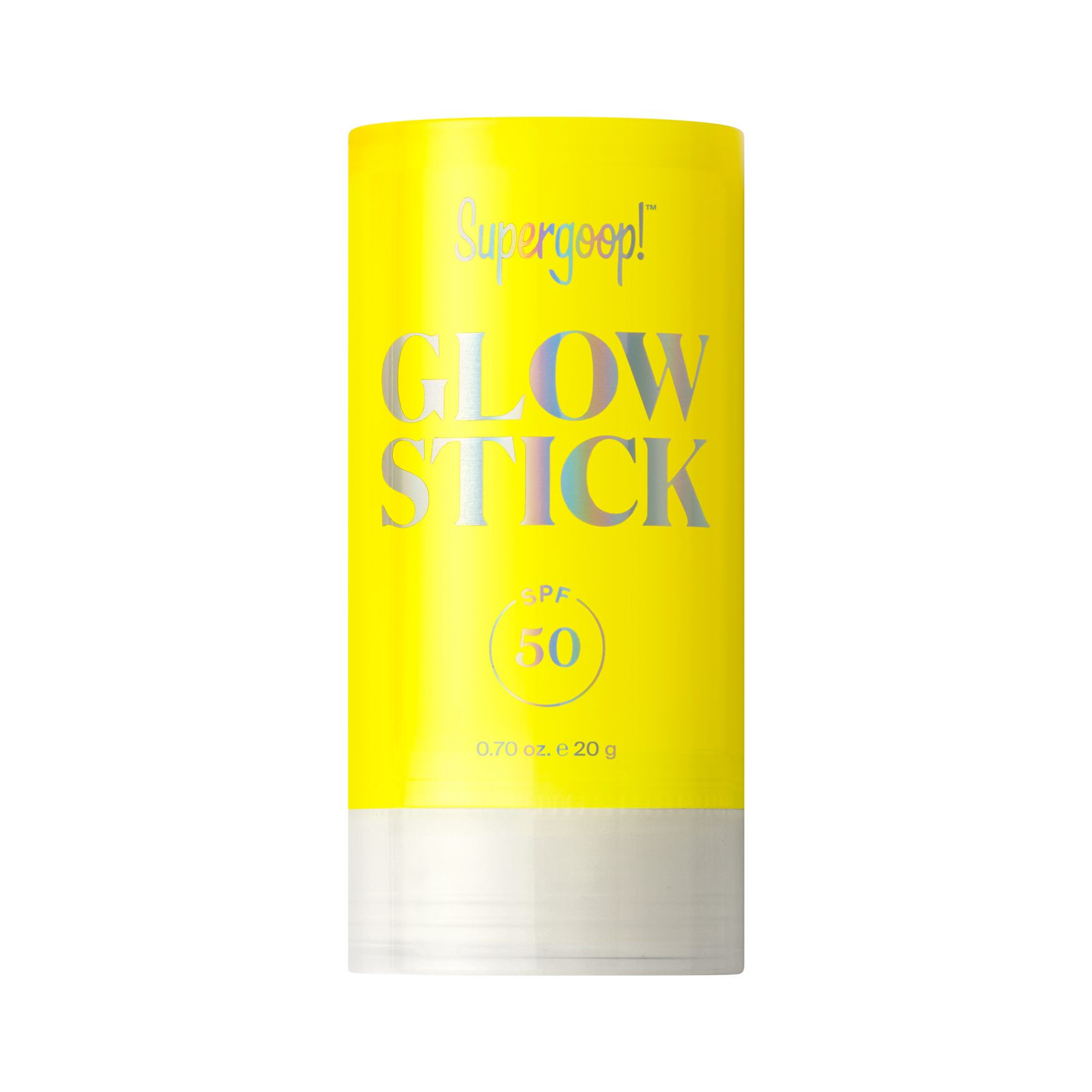
Le Rub
All-day Sunscreen Spf30, £6.70
Best All-Over Sunscreen
There’s no shortage of skincare-infused sunscreens in this list, but what we love most about Le Rub’s is that you can quite literally lather it on from head to toe. Packed with glycerin, vitamin E and grapeseed oil – which band together to hydrate and replenish the skin, while deflecting UV rays – this mineral SPF is just as suitable for the face as the body, and equally effective for kids and sensitive skin. Even better? Its invisible formula leaves no trace of a dreaded white cast, so all skin tones can wear it freely too.
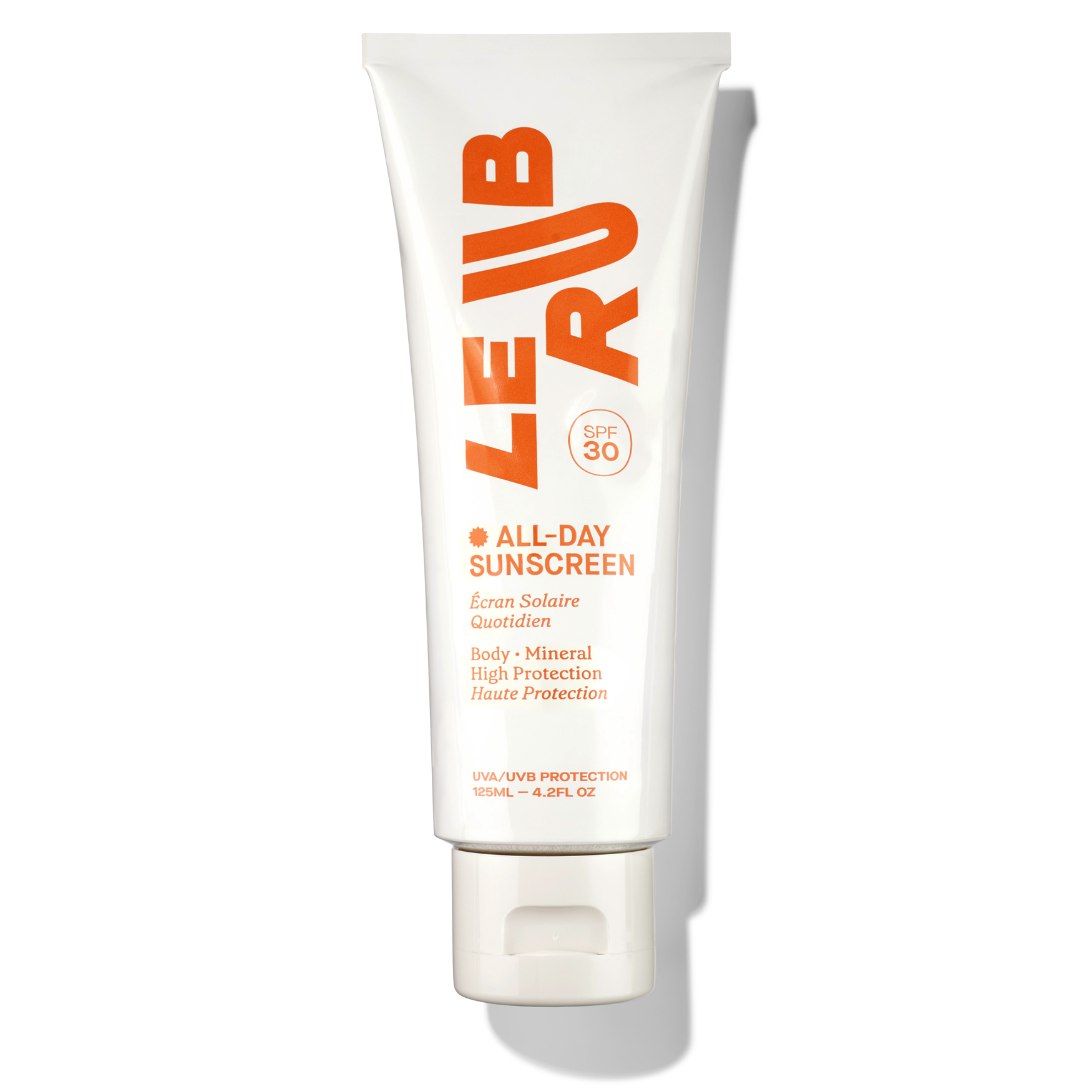
Which sunscreen is best for your face?
It’s worth taking the time to find The one. Start by considering your skin type, application preference and what kind of finish you are looking for. Gone are the days where sunscreen used to be thick, greasy and unsuitable for all skin tones and skin types. Whether you like mineral or chemical sunscreen, something neutral or tinted or are looking to target breakouts or dark spots, the possibilities are endless.
What is the best sunscreen brand for your face?
We’re spoilt for choice with the amount of brands that are offering sunscreen for your face. Dermatological brands like Dr Dennis Gross, Augustinus Bader and Medik8 pack their formulas with hardworking skincare ingredients that target everything from hyperpigmentation to fine lines. Meanwhile, Australia-born favourites like Ultra Violette are amongst the best for sun protection as they have undergone vigorous testing to withstand high UV environments. Makeup-first brands like KOSAS know how to prep a perfectly protected makeup base. The choices are endless, and you can discover the best sunscreen for your face at Space NK.
READ MORE
• Everything You Need To Know About SPF• The Best Cleanser for Every Skin Type • Everything You Need To Know About Zinc Oxide
• Summer Skincare Essentials



